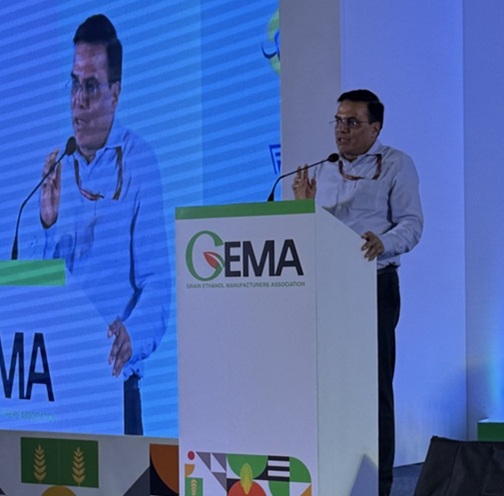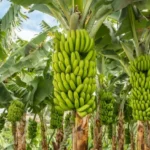In a bid to support India’s expanding ethanol blending programme, the government will ensure sufficient feedstock availability for grain-based distilleries in the upcoming ethanol supply year (ESY) 2025-26, a senior official said on Thursday.
Speaking at an event organized by the Grain Ethanol Manufacturers Association (GEMA), Ashwini Srivastava, Joint Secretary, Department of Food and Public Distribution (DFPD), said, “OMCs (Oil Marketing Companies) might issue a tender for the next ESY ethanol production within the next two months. We will ensure that broken rice is available and that there is no dearth of feedstock for grain-based distilleries.”
Srivastava highlighted that the recent increase in maize procurement prices has encouraged farmers to cultivate more maize, boosting grain-based ethanol production. “Both molasses-based and grain-based ethanol producers have contributed to enhancing farmers’ incomes,” he noted.
“Maize procurement prices have gone up, benefiting farmers and encouraging higher production.
Both molasses- and grain-based ethanol producers have played a key role in boosting rural incomes.”
Ashwini Srivastava, JS, DFPDThread. pic.twitter.com/wdRdDggInG
— ChiniMandi (@ChiniMandi) July 18, 2025
However, he pointed that there is need to ensure optimal capacity utilisation across ethanol plants and a stronger feedstock supply chain. “We urge GEMA to work towards higher-yielding varieties of maize and other food grains to secure a stable and long-term supply base,” he added.
Former DFPD Chief Director Sangeet Singla, also speaking at the event said, “I don’t expect OMCs to increase the price of ethanol procurement. We can develop separate storage for various feedstocks and as maize is prone to Aflatoxin, a separate storage will be helpful.”
Meanwhile, Amit Sachdeva of the U.S. Grains Council praised India’s achievement in reaching its blending target but stressed the need to focus on maize productivity and the co-product market. “There is ample room to improve corn productivity in the country. We need consistent product in DDGS, which is used upto 10% in poultry and 20% in dairy, but due to inconsistency and adulteration, industry is hesitant. Oil from DDGS can be extracted and used for production of biodiesel and SAF,” he said.
We must pat ourselves on the back for achieving 20% ethanol blending ahead of schedule.
It’s time to rethink maize—not just as food, but as fuel. Let’s make it an industrial energy crop.”
Amit Sachdeva, US Grains Council pic.twitter.com/s9x0GpQVSX— ChiniMandi (@ChiniMandi) July 18, 2025
India has made significant progress in its ethanol blending programme, driven by the dual goals of reducing crude oil imports and supporting rural incomes. However, the industry now faces the challenge of scaling sustainably amidst tightening supply chains and volatile input costs.

















[…] Source : Chinimandi […]